@Pitt
faculty & staff community
On the Move | Accolades | All
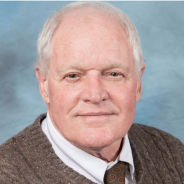
Oscar E. Swan, professor in the department of Slavic Languages and Literatures in the Kenneth P. Dietrich School of Arts and Sciences and advisor for the Polish minor, was awarded the Officer’s Cross of the Order of Merit from the Republic of Poland.
Swan received the award "in recognition of [his] outstanding services in promoting Polish language and Polish culture, and for outstanding achievements in Slavic Studies."
Swan accepted the prestigious award, presented by the Polish Ambassador to the United States, in May in Washington, D.C.

The Next-Generation Energy Conversion and Storage Technologies Lab at the University of Pittsburgh’s Energy Innovation Center recently announced a new energy research partnership with Malvern Panalytical that will enable the lab to see the chemistry of what is happening inside a battery while it is in use.
The lab, headed by Prashant N. Kumta, focuses on energy conversion and storage, including rechargeable battery systems. Malvern Panalytical’s Empyrean X-ray Platform, a multipurpose diffractometer, will be used in the lab to identify solid-state materials by determining their internal structure, composition and phase while they are in use.

Keisha N. Blain, associate professor in the Department of History, has been awarded the annual Berkshire Conference of Women Historians Book Prize for her recent publication “Set the World on Fire: Black Nationalist Women and the Global Struggle for Freedom.”
The book, which “[draws] on a variety of previously untapped sources, including newspapers, government records, songs and poetry,” tells the stories of Black women nationalists in the 20th century. The book prize is given annually for “a first book that deals substantially with the history of women, gender and/or sexuality.”
According to a statement, the selection committee said, “Featuring an impressive archive and transnational in scope, every single chapter in this book offers serious interventions, contributions, and reinterpretations of familiar historical narratives.”
Blain also won the 2019 Darlene Clark Hine Award from the Organization of American Historians for the same publication.

The Pittsburgh Collaboratory on Water Research, Education, and Outreach, has released the white paper “Green Infrastructure for Stormwater Management: Knowledge Gaps and Approaches.” The paper proposes methods to comprehensively study stormwater management and green infrastructure projects underway in local governments throughout Allegheny County. The recommendations are based on a meeting of 32 stakeholders in water management, including representatives from Pittsburgh Water and Sewer Authority and Allegheny County Sanitary Authority. The collaboratory is an initiative founded by Professor Emily Elliott, Associate Professor Daniel Bain and Assistant Professors Eitan Shelef and Brian Thomas, all from the Department of Geology and Environmental Science, with support from The Heinz Endowments.
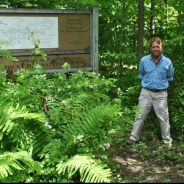
The University of Pittsburgh at Johnstown has been designated as a Certified Audubon Cooperative Sanctuary through the Audubon Cooperative Sanctuary Program. Pitt–Johnstown is the first Pennsylvania university to earn this certification, and only the eighth overall.
Pitt–Johnstown Supervisor of Campus Grounds Dave Finney, who led the effort to obtain sanctuary designation, was recognized by Audubon for his environmental stewardship. The Johnstown campus maintains a 655-acre grounds with 15 miles of trails.
"The University of Pittsburgh at Johnstown has shown a strong commitment to its environmental program. They are to be commended for their efforts to provide a sanctuary for wildlife on their property," said Christine Kane, CEO at Audubon International. “By taking action to implement indoor and outdoor conservation projects, the administration, faculty and staff at the University of Pittsburgh at Johnstown have demonstrated their commitment to the sustainable management of their natural resources.”
Certification demonstrates an organization’s leadership, commitment and high standards of environmental management in areas such as environmental planning, wildlife and habitat management, water quality and conservation, resource management and outreach and education. Recertification is required every three years to maintain the designation.
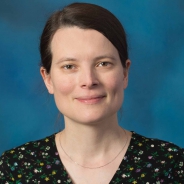
Caroline Runyan, assistant professor of neuroscience, has been named a Pew Scholar in the Biomedical Sciences by The Pew Charitable Trusts. The program provides funding to promising young investigators advancing human health who are in their first few years of their appointment at the assistant professor level.
Runyan, who arrived at Pitt in 2017, was one of 22 early career researchers named to the 2019 class of scholars by leading U.S. academic and research institutions. The award comes with four years of flexible funding to invest in exploratory research.
Runyan’s research focus is on the brain’s ability to flexibly control perception and behavior in different situations — specifically, she images and manipulates cells and circuits to learn how the brain is able to shift gears quickly, as well as how it processes different types of sensory information depending on behavioral context.
The Pew funding is helping the lab image activity both within and between brain regions, “so we can start to get a sense of how the brain is able to filter out irrelevant information, or amplify important information. We’re developing methods to study the local circuit mechanisms that control how two brain regions interact to transmit information.”
This will all hopefully enable new, systems-level approaches to understanding brain disorders with altered network communication, such as autism and schizophrenia, Runyan said.

Renee J. Rogers (EDUC ’09G, ’12G), assistant professor in the Department of Health and Physical Activity in the School of Education, was inducted as a Fellow of the American College of Sports Medicine (ACSM) at their conference in May. The fellowship “recognizes individuals who exhibit a deep and ongoing interest and dedication to the goals and long-range activities of the ACSM.”
Rogers’ work includes research on the health benefits of physical activity, with an emphasis on research into practice.
Rogers, who is also the programming director of Pitt’s Healthy Lifestyle Institute, also recently appeared in Good Housekeeping magazine for her expertise on weight loss and exercise physiology.

Adam Shear, associate professor of history and associate professor and chair of religious studies, is part of a team of scholars who received a Special Initiatives Grant from the American Academy for Jewish Research. The grant will help fund a training workshop and series of webinars that will teach a growing number of students and early career scholars how to read early modern Hebrew handwriting.
“Most paleography training is for medieval handwriting but we are interested in the handwriting of people who were writing in their printed books after the invention of print,” Shear said.
Shear, who studies medieval and early modern Jewish cultural and intellectual history, says the workshop is still in planning phase.
The yearlong training course will begin with a three-day intensive workshop in New York tentatively scheduled for January 2020. Follow up webinars through spring, summer and fall 2020 will reinforce and expand upon lessons. The training is part of the larger Footprints project, a research project and database that tracks the movement of Jewish books since the inception of print.
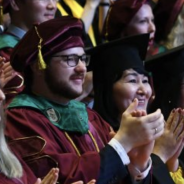
The Nazarbayev University School of Medicine saw its first class graduate this spring.
NUSOM, a school of Nazarbayev University in the Republic of Kazakhstan, selected the University of Pittsburgh School of Medicine as its strategic academic partner to assist in the development of the medical school. Since then, Pitt has helped NUSOM institute a curriculum based on the Pittsburgh model, as well as state-of-the-art teaching facilities, school leadership and faculty, policies, courses and more, allowing the new school to stand out in the republic.
Out of 937 graduates from the university as a whole, 41 received degrees from the inaugural class of NUSOM, with 14 medical doctors, 27 master’s graduates and 42 registered nursing to Bachelor of Science in Nursing graduates.

Michael Pinsky, professor of critical care medicine at the University of Pittsburgh, has been elevated to the rank of APS Fellow by the American Physiological Society.
The fellowship is an honor bestowed on senior scientists who have “demonstrated excellence in science, have made significant contributions to the physiological sciences and served the society.”
Pinsky has been a society member since 1984. During his professional career, he has edited 27 medical textbooks, authored over 350 peer-reviewed publications and over 250 chapters and supported over 400 abstract presentations. He is also the editor-in-chief of Medscape’s critical care medicine section.

Valerie Kinloch, the Renée and Richard Goldman Dean of the School of Education, has been elected vice president of the National Council of Teachers of English (NCTE).
According to its website, the NCTE “amplifies the voice of educators through personal connection, collaboration and a shared mission to improve the teaching and learning of English and language arts at all levels.”
“It is my honor to have been elected as NCTE’s next vice president,” said Kinloch. “Being a member of NCTE for more than 20 years has allowed me to partner with, learn from and be inspired by dedicated educators from around the world who have an unwavering commitment to language and literacy teaching, learning, practice and research.”
Kinloch will take office during NCTE’s annual convention in Baltimore this November.
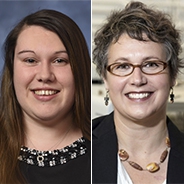
Two researchers at the University of Pittsburgh Swanson School of Engineering recently received a National Science Foundation Rapid Response Research (RAPID) grant for $175,000 to study the environmental effects of new anti-corrosion treatments currently being used on Pittsburgh’s lead pipes.
Sarah Haig, assistant professor of civil and environmental engineering at the Swanson School of Engineering with a secondary appointment in environmental and occupational health at the Graduate School of Public Health, and Emily Elliott, associate professor of geology and environmental science in the Kenneth P. Dietrich School of Arts and Sciences and director of the Pittsburgh Water Collaboratory, will evaluate water samples provided by the Pittsburgh Water & Sewer Authority.
They will assess and monitor changes in the microbial ecology, water chemistry and nutrient availability in the water collected from pipes and urban streams connected to the system.

Two researchers at the University of Pittsburgh recently received a National Science Foundation Rapid Response Research (RAPID) grant for $175,000 to study the environmental effects of new anti-corrosion treatments currently being used on Pittsburgh’s lead pipes.
Sarah Haig, assistant professor of civil and environmental engineering at the Swanson School of Engineering with a secondary appointment in environmental and occupational health at the Graduate School of Public Health, and Emily Elliott, associate professor of geology and environmental science in the Kenneth P. Dietrich School of Arts and Sciences and director of the Pittsburgh Water Collaboratory, will evaluate water samples provided by the Pittsburgh Water & Sewer Authority.
They will assess and monitor changes in the microbial ecology, water chemistry and nutrient availability in the water collected from pipes and urban streams connected to the system.

Two researchers at the University of Pittsburgh recently received a National Science Foundation Rapid Response Research (RAPID) grant for $175,000 to study the environmental effects of new anti-corrosion treatments currently being used on Pittsburgh’s lead pipes.
Sarah Haig, assistant professor of civil and environmental engineering at the Swanson School of Engineering with a secondary appointment in environmental and occupational health at the Graduate School of Public Health, and Emily Elliott, associate professor of geology and environmental science in the Kenneth P. Dietrich School of Arts and Sciences and director of the Pittsburgh Water Collaboratory, will evaluate water samples provided by the Pittsburgh Water & Sewer Authority.
They will assess and monitor changes in the microbial ecology, water chemistry and nutrient availability in the water collected from pipes and urban streams connected to the system.

Nine members of the University of Pittsburgh community have been named to the New Pittsburgh Courier’s Fab 40 Class of 2019 list.
The Fab 40 list recognizes African-Americans under the age of 40 who make a positive difference in the Pittsburgh area through their fields of expertise.
Current Pitt staff members that are named to the Class of 2019 include: Cassandra Brentley, program manager in the School of Education’s Center for Urban Education; Tenecia Ross, director of employee and labor relations in the Office of Human Resources; and Deborah Todd (A&S ’03), communications manager in the Office of University Communications.
The following members of the University’s alumni community were also named to the Class of 2019: Camille A. Clarke-Smith (A&S ’06, EDUC ’08G), UPMC Health Plan/T.H.A.W.; Ronald B. Coursey (A&S ’08), Woodland Hills School District; Alyssa P. Lyon (A&S ’12), Pittsburgh Community Reinvestment Group/AmeriCorps VISTA; Julius Ridgley (BUS ’15G), Eat ‘N Park Hospitality Group, Inc.; Aster Teclay (A&S ’10), Housing Authority of the City of Pittsburgh; and Terri White (BUS ’19G), Lowe’s Companies, Inc.
All Fab 40 honorees will be celebrated at the Fairmont Pittsburgh Hotel on July 19.

Rob Rutenbar, senior vice chancellor for research at the University of Pittsburgh, was recently in Washington, D.C., as part of the White House Academic Roundtable on Innovation in Quantum Information Science.
Rutenbar, along with other U.S. academic leaders and scientists, discussed ideas with federal agency representatives and government officials on ways research institutions can encourage and integrate innovation ecosystems. The goal of the National Quantum Initiative is to promote quantum information sciences for researchers and students — a field that involves both computational and physics research.
“Pitt has been aggressively working on quantum science and technology for several years,” said Rutenbar. “Our Pittsburgh Quantum Institute includes nearly 100 quantum faculty from universities across the region, working on topics ranging from fundamental physics to computer science, all focused on advancing the field to practical applications in computing, communication and sensing.”

Victoria Hornyak, assistant professor of physical therapy in the University of Pittsburgh’s School of Health and Rehabilitation Sciences, recently received the 2019 Geriatrics Teacher of the Year Award from the Pennsylvania Geriatrics Society — Western Division.
Hornyak is recognized for her work at Pitt, which includes coordinating and serving as the primary instructor for courses related to patient management and geriatrics in Pitt’s Department of Physical Therapy program. She also serves as the faculty mentor for the students’ Geriatrics Special Interest Group and is an SHRS representative for Pitt’s Center for Interprofessional Practice and Education.
Her research addresses advancing dementia care competency and preparedness across disciplines through a grant as part of the Geriatric Workforce Enhancement Program. The project’s goal is to adapt existing communication skills programs to better interact with patients who have dementia.
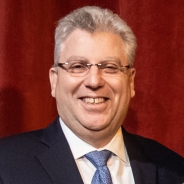
Panos Chrysanthis, a professor of computer science in the School of Computing and Information, has been recognized by the University of Massachusetts Amherst College of Information and Computer Science for Outstanding Achievements in Education. He and seven other alumni of the school were honored in April for achievements in education, entrepreneurship, research and management as well as computing for the common good and outstanding achievements by a young alumnus.
At Pitt, Chrysanthis is founding director of the Advanced Data Management Technologies Lab. He has received seven teaching awards and, in 2015, was given the University of Pittsburgh Provost Award for Excellence in Mentoring for doctoral students.

Assistant Vice Chancellor of University Benefits John Kozar was recently named a Pittsburgh Business Times Workplace Wellness Champion.
The new award honors Pittsburgh leaders who are working to advance the physical, mental and fiscal health of their employees and their families. Kozar and other wellness champions will be honored at a luncheon at the Westin Convention Center Hotel on Thursday, May 23.
Kozar told the Pittsburgh Business Times that when he began his career at Pitt more than 15 years ago, he set out to develop health and wellness programs, with a goal of changing the culture around wellness at the University.
“It’s about doing the right thing, creating awareness, trying to reach faculty, staff and students in as many ways as we can,” said Kozar.
In his role in the Office of Human Resources, Kozar oversees the benefits department and negotiates all contracts and agreements, as well as develops costs and any changes in plan designs. He provides oversight of the on-site MyHealth@Work Center health and wellness center for faculty and staff. Additionally, he serves as a liaison for the University Senate’s benefits and welfare committee.
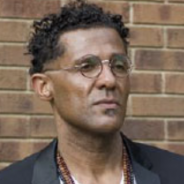
Tony Gaskew, professor of criminal justice at the University of Pittsburgh at Bradford, has been appointed to a three-year term on the NCAA Minority Opportunities and Interests Committee, effective September 2019.
The 18-member committee is responsible for reviewing issues and promoting NCAA programs and policies related to student athletes, coaches and administrators who are ethnic minorities, LGBTQ or who have disabilities. It was established in 1991 to enhance commitment to foster racial equality and diversity in collegiate athletics.
Gaskew is professor of criminal justice, director of the criminal justice program, and founding director of the Prison Education Program at Pitt-Bradford. He is the senior faculty advisor to the Pitt-Bradford Office of the President in the area of athletics.
He is a graduate of the NCAA Faculty Athletics Representative Fellows Institute and since 2016, Gaskew has served as the campus’ faculty athletics representative to the NCAA. As such, he plays a vital strategic and tactical role in overseeing its institutional responsibilities in the NCAA’s three broad areas of academic integrity (including academic reform initiatives), institutional control and student-athlete well-being.